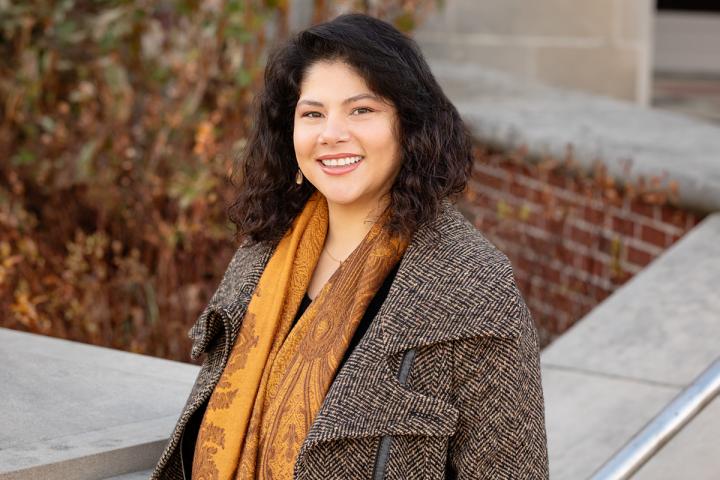
Credit: Photo by L. Brian Stauffer
CHAMPAIGN, Ill. — A research project is exploring whether interventions that have been effective at engaging high-risk populations in HIV/AIDS testing and treatment can be adapted to achieve similar effects in mitigating COVID-19.
The project involves a randomized trial with more than 580 residents of Essex County, New Jersey, who are medically or socially vulnerable to COVID-19. The researchers will identify factors that promote compliance with testing and the state’s COVID-19 mitigation strategies such as handwashing, social distancing and self-quarantining.
University of Illinois Urbana-Champaign social work professor Liliane Windsor is partnering with Ellen Benoit of the North Jersey Community Research Initiative on the project, which is supported by a grant from the National Institute on Minority Health and Health Disparities.
The National Institutes of Health Office of the Director awarded a $1.6 million grant for the project under the Rapid Acceleration of Diagnostics-Underserved Populations initiative.
The goal is to develop an effective and scalable program that increases COVID-19 testing and treatment rates among marginalized, hard-to-reach populations and those who refuse to or are unable to adhere to New Jersey’s public health recommendations, Windsor said.
Windsor is a health disparities researcher who designs and implements community-supported interventions aimed at reducing substance use frequency and HIV-HCV risk behaviors. She has researched marginalized populations in Newark since 2009, including people who have experienced substance abuse and incarceration.
“Little is known about the acceptability of COVID-19 testing in low-income and racial/ethnic minority neighborhoods, where residents experience increased barriers to prevention such as inadequate housing and working in high-risk occupations,” Windsor said. “However, cost-effective, evidence-based and culturally appropriate interventions have been successfully used to engage these populations in HIV prevention and treatment.”
Windsor also is the founder of the Newark Community Collaborative Board, a group of researchers, service providers and consumers working together to improve the health of New Jersey residents through research, critical thinking and civic engagement.
Since joining the U. of I. social work faculty in 2015, Windsor has established a national reputation for her work in health policy. Windsor was among six mid-career researchers named Health Policy Fellows for 2019-20 by the National Academy of Medicine and the Robert Wood Johnson Foundation.
Benoit is a qualitative sociologist and expert in substance use and HIV prevention among hard-to-reach and marginalized populations. The North Jersey Community Research Initiative is one of the state’s largest and most comprehensive HIV/AIDS organizations, with a mission to empower clients by reducing social and health disparities.
###
Media Contact
Sharita Forrest
[email protected]
Original Source
https:/
https://scienmag.com/study-adapting-hiv-aids-behavioral-interventions-to-mitigate-covid-19/




